EMCQSL Faculty

Carole Hemmelgarn, M.S., M.S. in Patient Safety Leadership
Program Director, Executive Master’s in Clinical Quality, Safety & Leadership
Instructor, School of Medicine, Georgetown University
Carole Hemmelgarn, MS, MS, is the Program Director for the Executive Master’s program in Clinical Quality, Safety & Leadership at Georgetown University, and the Senior Director of Education at the MedStar Institute for Quality & Safety. Carole received a master’s degree in Patient Safety Leadership from the University of Illinois at Chicago, and a second master’s degree in Health Care Ethics from Creighton University. She sits on the Leapfrog Patient & Family Caregiver Expert Panel, Board of Quality, Safety and Experience at Children’s Hospital Colorado, Patient and Family Advisory Committee for the Collaborative for Accountability and Improvement, Board of Children’s Hospital Solutions for Patient Safety, and National Quality Forum Stakeholder Advisory Council. She is a founding member of Patients for Patient Safety US.
“This program adapts to the ever changing healthcare environment. When COVID- 19 hit and the racial unrest these important events were included in our class discussions.”
Carole Hemmelgarn, Speaking about CQSL 6505 Interprofessional Experiences, Communication and Simulation

Christopher Bonk, MSN, R.N., CNL
Instructor, School of Health, Georgetown University
Chris is a senior clinical human factors expert and nurse at MedStar Health National Center for Human Factors in Healthcare, and an adjunct instructor at the University of Maryland, College of Information Studies. He holds a Master of Science in human-computer interaction from the University of Maryland, College Park, and a Master of Science in nursing from the University of Maryland School of Nursing. Chris provides unique expertise in nursing practice and patient safety for a variety of projects and grants. His professional expertise is in the integration of medical technology within facilities, the assessment of best practices for medical staff, and user experience design of both web and mobile applications. His nursing practice is based in emergency medicine and was a founding member of the unit practice council on his unit to implement and continuously improve the unit/department‐specific Relationship‐Based Care (RBC) delivery model and related outcomes. He is also a recipient of the Laurence B. Heilprin award for his paper on health inequities within the homeless population from the University of Maryland.
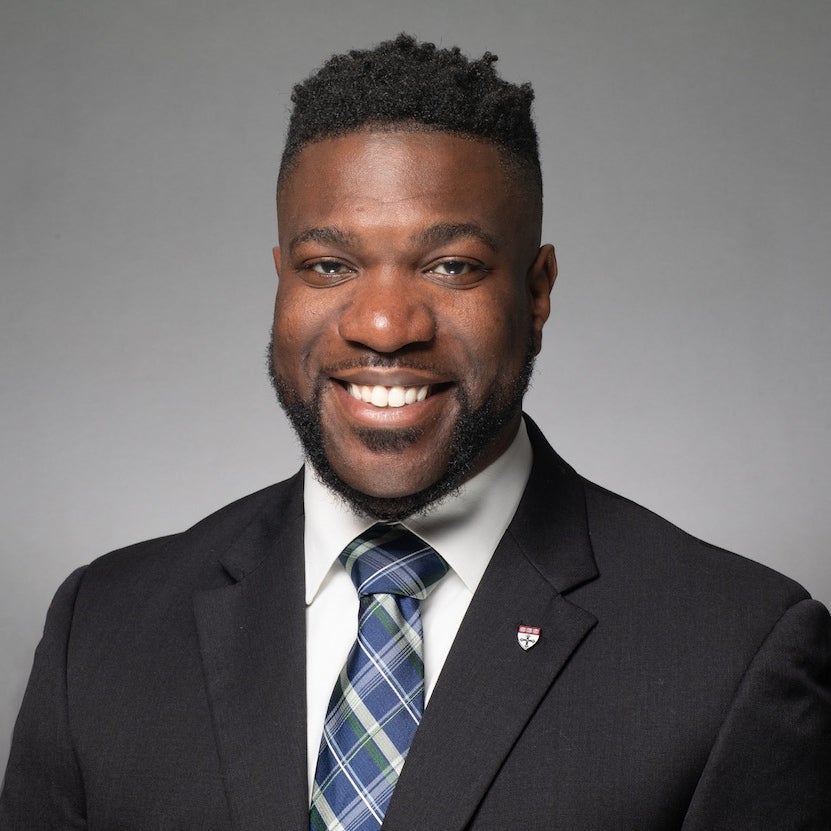
Bryan O. Buckley, DrPH, MPH, MBA, ACC
Assistant Professor, School of Medicine, Georgetown University
Bryan O. Buckley, DrPH, MPH, MBA, ACC, is a leader focused on health equity and system-oriented approaches. As the Head of Public Health at CareFirst BlueCross BlueShield, Dr. Buckley spearheads the strategy for advancing and achieving better health outcomes for the people and communities in Maryland, the District of Columbia, and the Northern Virginia regions. He also holds a position as an Adjunct Assistant Professor at the Georgetown University School of Medicine, where he mentors graduate students in medicine and biomedical education. With over 15 years of experience, Dr. Buckley is a dedicated public health practitioner who blends frontline experience with educational insights, leading transformational initiatives in organizational development, process improvement, health delivery system redesign, performance improvement, and change management.
Dr. Buckley’s academic credentials include a Doctor of Public Health (DrPH) from the Harvard T.H. Chan School of Public Health, focusing on management, strategy, and organizational change. Additionally, he earned an Executive MBA from the Quantic School of Business and Technology, a BS in Microbiology, and an MPH with a concentration in Infectious Diseases and Administration from Michigan State University. As a certified ICF coach, Dr. Buckley is deeply involved in public health leadership, serving as an Executive Board Member and Development Committee Chair at the American Public Health Association. Locally, he contributes as a Board Member of the American Heart Association’s Greater Washington Region and Food & Friends, showcasing his commitment to community health and well-being.\

Richard “Tony” Calabria, M.A., CPHQ, CSSBB
Instructor, School of Medicine, Georgetown University
Mr. Richard (Tony) Calabria is currently the Clinical Quality and Regulatory Programs Director for the Department of Quality & Safety at MedStar Health. Mr. Calabria holds a BS is Psychology and a MA in Experimental Psychology and is a Certified Professional in Healthcare Quality and Certified Lean/Six Sigma Black Belt. He has over 15 years of experience in healthcare quality and process improvement. Throughout his career, Mr. Calabria has facilitated and led clinical quality improvement initiatives and serves as a subject matter expert for CMS and HSCRC Pay for Performance Programs, such as VBP/QBR and HAC/MHAC, as well as for publicly reported metrics, such as Leapfrog and CMS Star Ratings. Mr. Calabria is active in the Healthcare Quality Community as a board member for the Maryland Association for Healthcare Quality and as a faculty member of the MedStar Institute for Quality and Safety.
“The Quality Improvement Methods course, offers students a unique opportunity to learn about and use many of the Quality Improvement Tools that are commonly used throughout healthcare. Many tools and methods are covered, along with an opportunity to apply select methods to hypothetical or real-life situations that student may face as a Quality Leader. Additionally, this course aligns with the National Association for Healthcare Quality standards and prepares students for the Certified Professional in Healthcare Quality Exam. A certification that many healthcare employers find desirable or are now requiring.”
Tony Calabria, speaking about CQSL 6503 Quality Improvement Methods

Gerard M. Castro, Ph.D., MPH
Assistant Professor, School of Medicine, Georgetown University
Dr. Gerry Castro is the Managing Director of Research, Policy, and Quality Improvement at ATW Health Solutions. At ATW, he will be supporting the AHRQ Diagnostic Safety Coordinating Center as well as working across the organization to expand research and quality improvement program capabilities. His previous role was with Society to Improve Diagnosis in Medicine (SIDM) as the Director of Quality Improvement. Prior to SIDM, he was the Project Director for Patient Safety Initiatives in the Office of Patient Safety at the Joint Commission on Accreditation of Healthcare Organizations (Joint Commission). His professional efforts are focused on improving patient safety through defining and applying evidence-based strategies in health care. Dr. Castro was the Principal Investigator for the Office of the National Coordinator for Health IT project “Investigations of Health IT-related Deaths, Serious Injuries or Unsafe Conditions.” He was a member of the AHRQ Diagnostic Centers of Excellence Special Emphasis Panel, AAMI Foundation Board of Directors, as well as the NQF Common Formats and HIT Patient Safety and Expert Panels.
He received his undergraduate degree from Loyola University in Chicago and his Master of Public Health degree from the University of Illinois at Chicago in health policy and administration. He received a Ph.D. in Public Health Sciences at the University of Illinois at Chicago, focusing on patient safety and safety event analysis.
Specialties: Patient safety, health IT, international and governmental liaison, public presentation, grant writing.
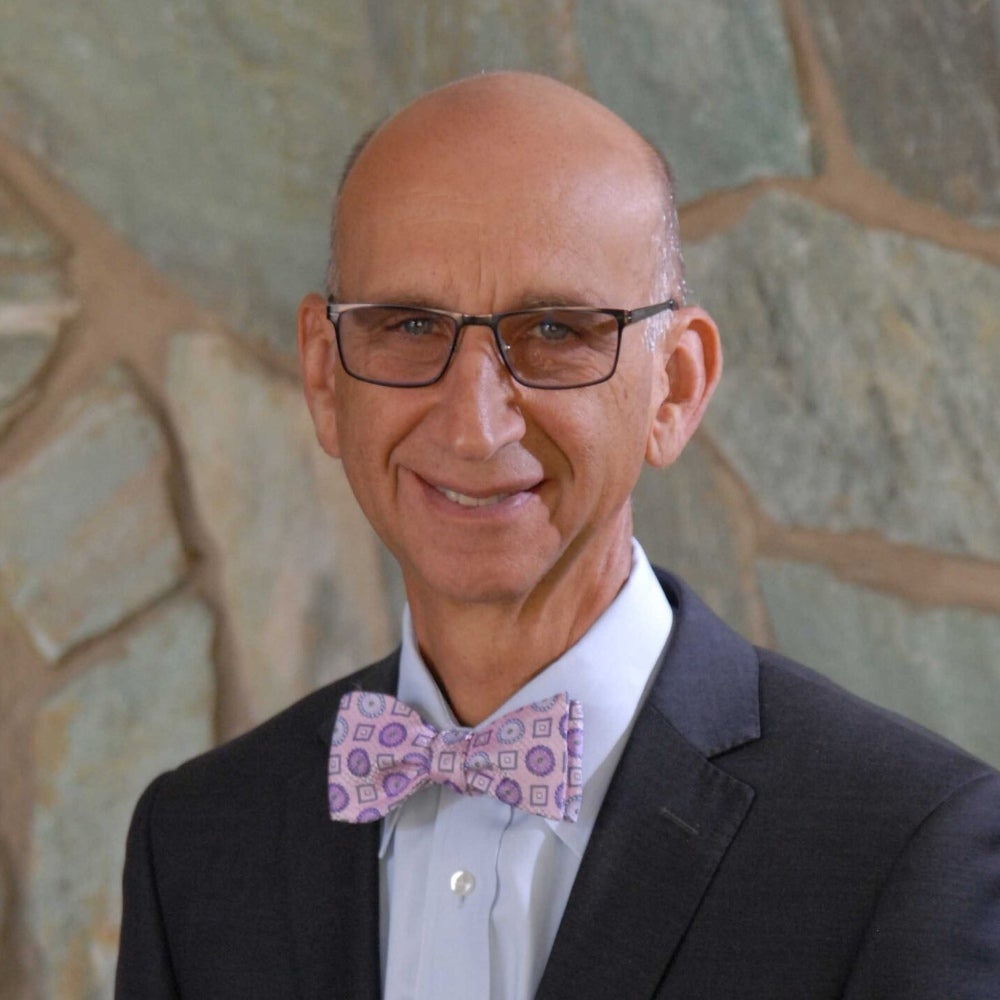
David L. Dull, M.D., MMM, CPE, FAAPL
Associate Professor, School of Medicine, Georgetown University
David completed his undergraduate degree at DePauw University and his medical degree at Wayne State University School of Medicine. Following an internship in Internal Medicine at University of Iowa. He completed a residency in Anesthesiology and fellowship in Pediatric Anesthesiology at University of Iowa. He taught at University of Iowa for 2 years rising to the rank of Assistant Professor before transitioning to private practice in Grand Rapids MI. For more than 20 years he provided direct patient care to surgical patients in Grand Rapids, while also serving in multiple different leadership and executive roles, including Chair for a Department of Anesthesiology, President of the Michigan Society of Anesthesiologists, Director for the Michigan Board of Medicine, President of the Medical Staff, Perioperative Medical Director, Vice President for Quality and Safety, and Interim Chief Medical Officer. In 2012 he left Grand Rapids to serve first as the Chief Medical Officer for 2 hospitals within the Ascension Health System and later as the CMO for 2 hospitals within CommonSpirit Health. During his career he has participated in and led the creation of multiple undergraduate and graduate medical education programs. Most recently he worked for the ACGME as CLER site visitor helping teaching hospitals across the United States improve the clinical environment.
David is the founder and President of Probitas Healthcare Advisors LLC and Compass Executive Coaching, where he focuses on clinician leadership development, and helping physician and other healthcare leaders solve their most pressing problems and achieve their professional goals. He is a certified executive coach through the Center for Executive Coaching, an ICF approved training program
David earned his Masters of Medical Management degree from Carnegie Mellon University. He has authored multiple book chapters and peer reviewed articles. He has lectured nationally and internationally on the topics of quality, patient safety and the role of influence in change management initiatives.
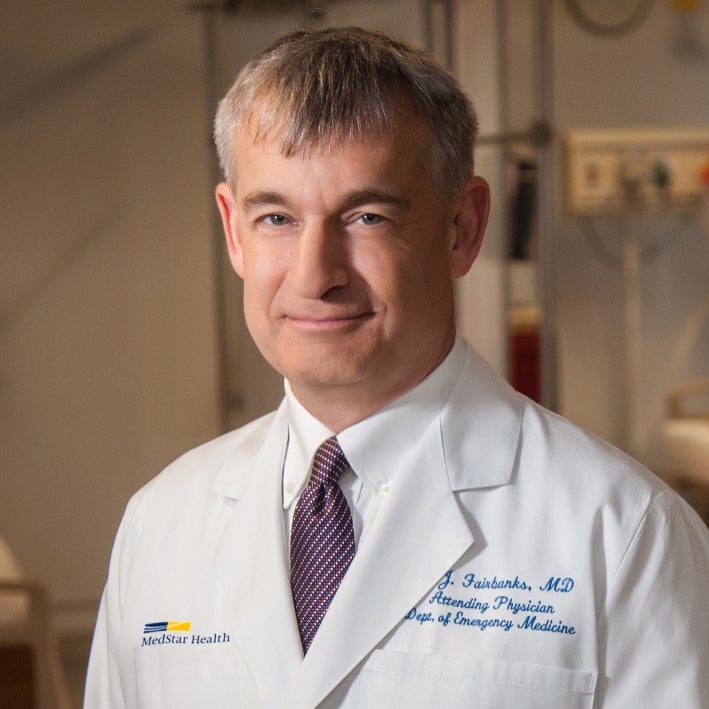
Rollin J. “Terry” Fairbanks, M.D., M.S.
Professor, Emergency Medicine, Georgetown University
Dr. Fairbanks is senior vice president and chief quality and safety officer at MedStar Health, professor of emergency medicine at Georgetown University, Executive Director at MedStar Institute for Quality and Safety, and founding director emeritus of MedStar Health’s National Center for Human Factors in Healthcare. He practices emergency medicine at MedStar Washington Hospital Center in Washington, DC.
Dr. Fairbanks has authored over 200 publications, edited a book on healthcare safety and human factors engineering, and received research funding from the National Institutes of Health, Agency for Healthcare Research and Quality, and others. He has served in safety advisory roles for several national organizations and for the United States, British, Spanish, and Australian governments.
A former paramedic, EMS Medical Director, general aviation pilot, and safety engineering researcher, Dr. Fairbanks earned a thesis-based master’s degree in industrial systems/safety engineering with a human factors/safety engineering focus at Virginia Tech, completed Medical School at VCU’s Medical College of Virginia, and residency training in emergency medicine at the University of Rochester where he was chief resident. He completed the Wharton School’s Physician Leadership certificate and the National Patient Safety Foundation’s HRET Patient Safety Leadership Fellowship.
Dr. Fairbanks is board-certified in emergency medicine, certified professional in patient safety, and was elected as a Fellow of the Human Factors and Ergonomics Society in 2022. He has been listed multiple times in Becker’s Hospital Review as a Top Expert Leading the Field of Patient Safety, is a recognized national and international speaker and influencer, and was recognized with the 2021 Robert L. Wears Patient Safety Leadership Award.
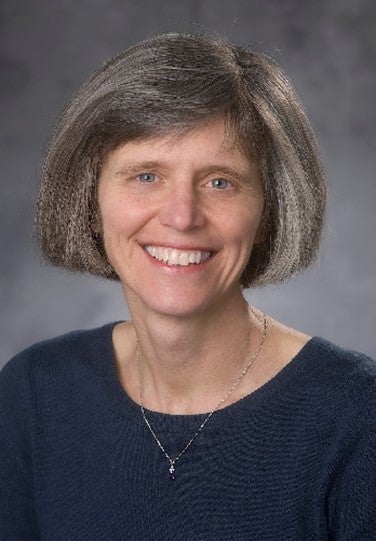
Karen Frush, MD, BSN, CPPS
Instructor, School of Health, Georgetown University
Dr. Karen Frush is a physician leader and pediatric emergency physician who has spent the majority of her 35-year healthcare career improving the quality and safety of patient care and the well-being of the healthcare team. She began her career as a nurse, having attended the University of Pittsburgh School of Nursing and graduated summa cum laude with a BSN.
Dr Frush is board certified in Pediatrics and Pediatric Emergency Medicine. She is the former Medical Director of Pediatric Emergency Medicine at Duke and became Professor of Pediatrics and Clinical Professor of Nursing at Duke University. She served as the Chief Patient Safety Officer of the Duke University Health System for 14 years and as Chief Quality Officer of the Duke Quality Network and Vice President for Quality at LifePoint Health for 5 years. In 2017, Frush and colleagues received the John M. Eisenberg Patient Safety and Quality Award, for the Duke-LifePoint National Quality Program. In 2018, Dr Frush was named Chief Quality Officer at Stanford HealthCare in Palo Alto, CA; she also served as Clinical Professor of Emergency Medicine and Pediatrics; Associate Dean for Clinical Affairs in the Stanford University School of Medicine and co-Executive Director of the Stanford Medicine Center for Improvement.
Dr Frush has a special interest in interprofessional training, high performing teams and transforming healthcare culture. She is a TeamSTEPPs Master Trainer and completed the National Patient Safety Foundation’s HRET Patient Safety Leadership Fellowship. Frush is a certified professional in patient safety and served on the Board of Advisors and Board of Directors for the National Patient Safety Foundation. She also served as Chair of the Institute for Healthcare Improvement’s Certification Board for Professionals in Patient Safety for three years and was named in Becker’s Hospital Review as one of 50 experts leading the field of patient safety for over 5 years.
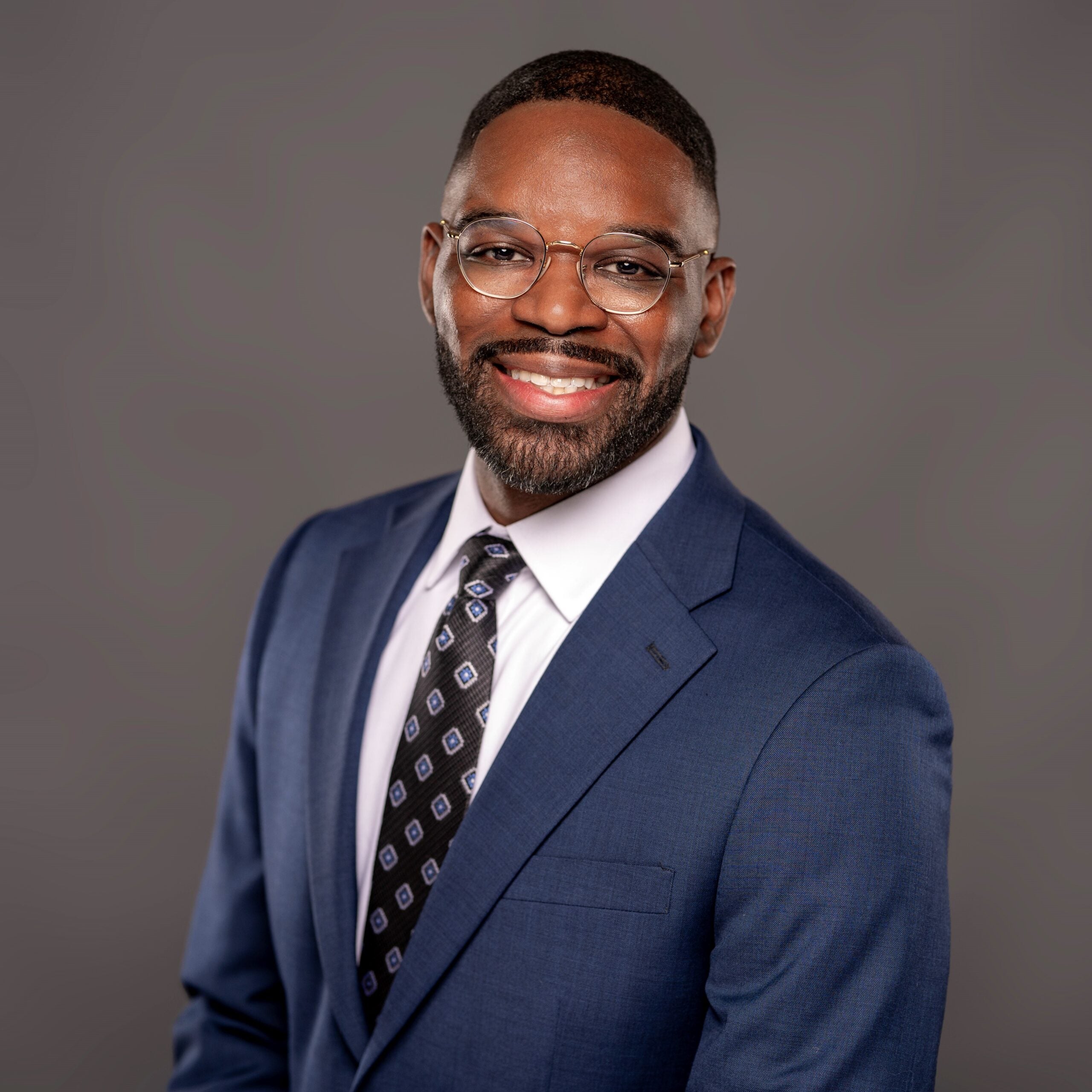
Kelly E. Haynie, DHA, MPA, FACHE
Assistant Professor, School of Medicine, Georgetown University
Kelly Edward Haynie, DHA, MPA, FACHE is a doctoral-prepared healthcare executive with a track record of leading transformation through strategy, execution, and people-first leadership. He currently serves as Chief Executive Officer at Ochsner Medical Center – West Bank Campus, part of Ochsner Health, the largest nonprofit academic health system in the Gulf South.
With over 15 years of experience in acute care hospital operations, Kelly has led high-impact initiatives across performance improvement, capital planning, and workforce development. Prior to joining Ochsner, he served as Vice President of Operations at MedStar Southern Maryland Hospital Center, where he provided executive oversight for multiple service lines, drove over $20M in capital improvements, and led measurable gains in imaging, lab, facilities, patient transport, environmental services, and food & nutrition.
A passionate educator, Kelly also serves as an Assistant Professor at Georgetown University’s School of Health, teaching healthcare operations and leadership to graduate students.
Kelly is a former Non-Commissioned Officer in the Maryland Army National Guard, where he served as a lead instructor for combat medic skills and EMT recertification. His military service instilled a mission-driven approach to leadership and a commitment to excellence under pressure.
He holds a Doctor of Health Administration (DHA) from Capella University, a Master of Public Administration (MPA) from the University of Baltimore, and is a Fellow of the American College of Healthcare Executives (FACHE).
Kelly’s core competencies include executive leadership, operational strategy, financial stewardship, stakeholder engagement, quality improvement, and team development. He is known for driving sustainable change through collaboration, discipline, and strategic alignment.
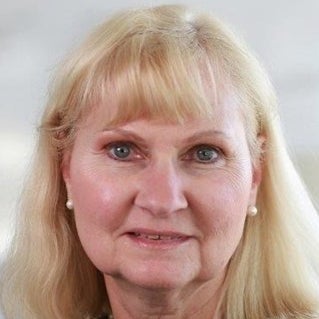
Mary Herold, EM-CQSL, BSN, RN, CPPS, PROSCI™
Instructor, School of Medicine, Georgetown University
Mary currently works as a Clinical Quality Outcomes Coordinator at MedStar Georgetown University Hospital. Previous to this position Mary was a Strategy and Consulting Manager, at Accenture Federal Services in the Health Practice space. Prior to joining Accenture she worked at Booz Allen Hamilton and advised the Veterans Health Administration (VHA) on developing and sustaining High-Reliability Organization principles and values. Mary also assisted in transitioning Military Treatment Facilities under the purview of the Defense Health Agency (DHA). Before working with the DHA and VHA, she was a System Clinical Safety Program Operations Manager for MedStar Health Institute for Quality and Safety. Mary started her career as a nurse at MedStar Georgetown University Hospital and continues to hold her DC Nursing License. Her passion is patient and employee safety and engaging patients and families in decision-making around care. This passion led her to become a Clinical Risk Manager for MedStar Georgetown University Hospital. She assisted in initiating the Patient Family Advisory Council for Quality and Safety (PFACQS) at MedStar Georgetown University Hospital and presently serves as an Associate member. Mary is also part-time faculty for the Executive Masters in Clinical Quality, Safety, and Leadership program at Georgetown University. Mary is certified as a Professional Patient Safety (CPPS) and has a Prosci Change Management certification.

John A. Hopper, MD, FAAP, FACP, DFASAM, CPPS
Professor, School of Medicine, Georgetown University
John is an active clinician-educator in addiction medicine and internal medicine in the Trinity Health System, where he serves as Medical Director of Patient Experience for the IHA Medical Group. He has nearly 40 years of experience in patient care and medical education, with active faculty appointments at six medical schools.
John’s academic focus is the interface of medical education, substance use disorders and safety. From 1995 to 1998 he participated in a SAMHSA funded Faculty Development Fellowship in Substance Abuse. John was the founding medical director of the Research Division on Substance Abuse in the Department of Psychiatry at Wayne State University from 1996 to 2005 where he served as the medically responsible investigator for a multi-million-dollar portfolio of NIH-funded clinical studies, including pioneering work with buprenorphine for the treatment of opioid use disorders (OUD). Since 1998 John has been active in training healthcare providers across the United States in safer opioid prescribing and the use of buprenorphine to treat OUD. From 2005 to 2008, he was the Chief Medical Officer at Brighton Hospital, the second-oldest addiction treatment hospital in the United States.
After completing training in LEAN Management, Six Sigma, and Patient Safety, he began to incorporate quality and safety training into graduate and undergraduate medical education programming. From 2008 to 2015, John directed the Internal Medicine Residency Program at St. Joseph Mercy Hospital in Ann Arbor, Michigan, where he created and directed the first accredited addiction medicine fellowship training program in the State of Michigan. From 2015 to 2020, John was a part-time Field Representative for the Clinical Learning Environment Review program of the Accreditation Council on Graduate Medical Education. In this capacity, he participated in quality and safety reviews at over 100 hospitals and residency sponsoring-institutions.
John earned his undergraduate degree from the University of Michigan in Ann Arbor and his medical degree at the Wayne State University School of Medicine. He completed residency training in Combined Internal Medicine and Pediatrics at the University of North Carolina, where he served as Co-Chief Resident in Pediatrics. He is Board Certified in Addiction Medicine, Pediatrics, and Internal Medicine. His current clinical practice includes hospital medicine and addiction medicine at Trinity Hospital Ann Arbor and Livonia in Michigan.

Sadaf Kazi, Ph.D.
Assistant Professor, School of Medicine, Georgetown University
Sadaf is a research scientist at the MedStar Health National Center for Human Factors in Healthcare at the MedStar Health Research Institute. Her research interests focus on investigating how complex, adaptive systems influence the nature of cognitive work, and designing tools and processes to improve safety in safety-critical environments. Sadaf applies theories from cognitive ergonomics such as prospective memory, interruptions, and situation awareness to improve medication safety.
Sadaf earned her doctorate in engineering psychology from the Georgia Institute of Technology. Through her prior experience at the Johns Hopkins Armstrong Institute for Patient Safety and Quality, she has hands-on experience in engaging with clinicians through qualitative and quantitative research methods.
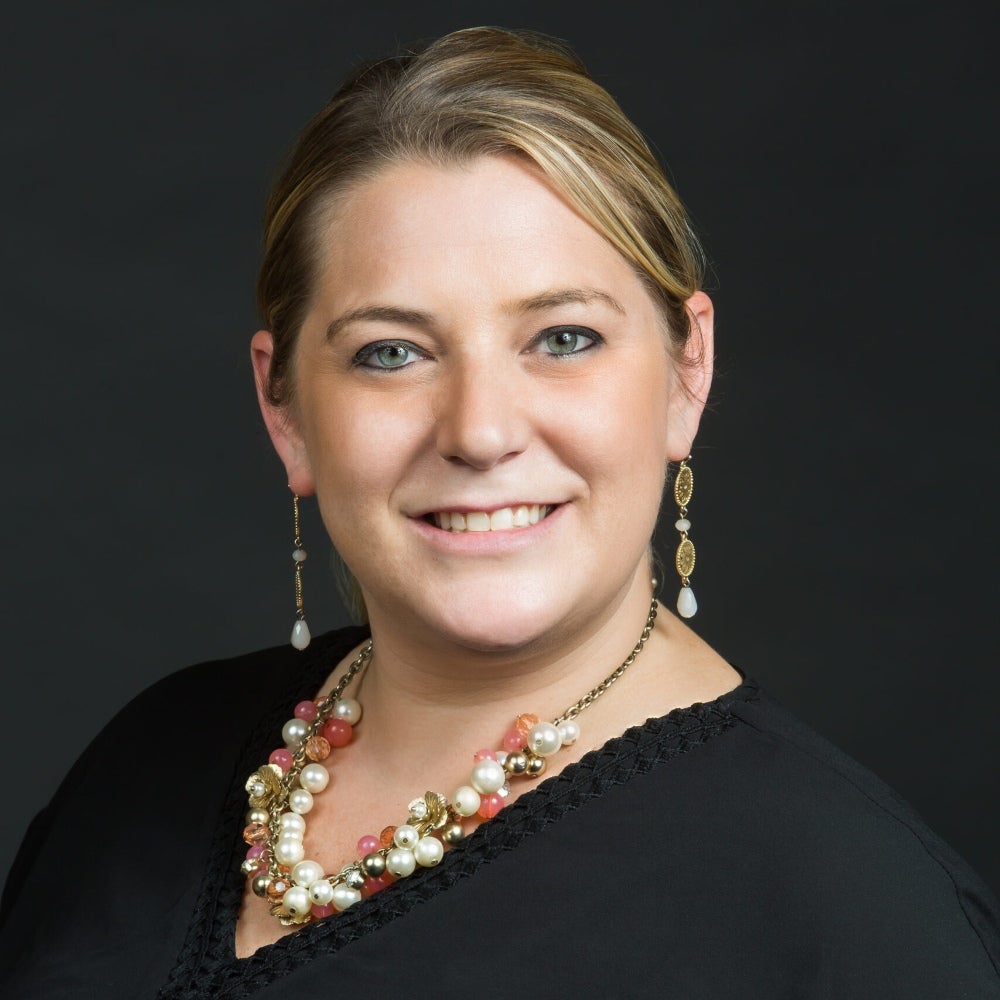
Kristen Miller, DrPH, MSPH, MSL, CPPS
Associate Professor, Emergency Medicine, Georgetown University
Kristen Miller, DrPH, MSPH, MSL, CPPS is the Co-Director of the MedStar Health Center for Diagnostic Systems Safety, Senior Scientific Director of the MedStar Health National Center for Human Factors in Healthcare, Associate Professor of Emergency Medicine at Georgetown University School of Medicine, Affiliate Faculty at Georgetown Innovation Center for Biomedical Informatics, and Graduate Faculty at George Mason University College of Public Health. Dr. Miller is a clinically oriented human factors researcher focusing on diagnostic safety, medical decision making, informatics, and the assessment of medical interventions with an emphasis on healthcare delivery. Her work incorporates both industrial engineering and cognitive psychology components and takes into account the entire system, from cultural components to characteristics of individual patients. Her work includes meaningful and active collaboration with patient partners, families, caregivers and frontline teams.
Her portfolio includes federally funded work from the National Institutes of Health, Agency for Healthcare Research and Quality, Office of the National Coordinator for Health Information Technology, Centers for Disease Control and Prevention, Pew Charitable Trust, and the Society to Improve Diagnosis in Medicine. Dr. Miller received her bachelors degree in public health studies from Johns Hopkins University, a masters degree in occupational health and safety and a doctorate in public health from Texas A&M University School of Public Health, and a masters degree in healthcare law from the University of Maryland Francis King Carey School of Law. Her experience includes a post-doctorate with the Department of Veterans Affairs National Center for Patient Safety, experience with multiple healthcare systems including the Veterans Health Administration, Johns Hopkins, and Christiana Care Health System. Dr. Miller was recently appointed to the National Academy of Medicine (NAM) Forum on Advancing Diagnostic Excellence, serves as a mentor in the Society to Improve Diagnosis in Medicine (SIDM) Fellowship in Diagnostic Excellence, and is an active participant on the Diagnostic Safety Measures Expert Workgroup to support AHRQ’s Quality Indicators (QI) Program.
Her teaching experience includes faculty in the Georgetown Executive Master’s in Clinical Quality, Safety, and Leadership, Georgetown Master’s in Health Informatics and Data Science, Georgetown School of Medicine, and faculty in the Academy of Emerging Leaders in Patient Safety (AELPS). She previously served as adjunct faculty in the Department of Public Health and Health Sciences, University of Michigan, as an invited faculty for an international summer school on mobile healthcare sponsored by the Association for Computing Machinery and held in Dublin, Ireland, and Stockholm, Sweden, and adjunct faculty at in the Department of Biomedical Engineering at Catholic University.
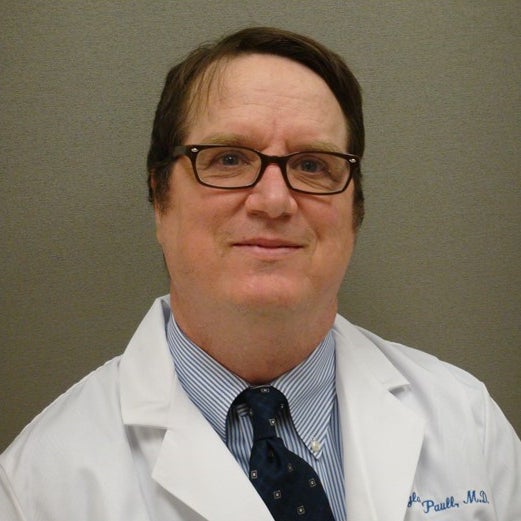
Douglas E. Paull, M.D., M.S., FACS, FCCP, CHSE, CPPS
Associate Professor, School of Medicine, Georgetown University
Dr. Paull graduated from Duke University with degrees in zoology and medicine. He underwent general surgical training at the New York Hospital Cornell Medical Center and cardiothoracic surgical training at the University of North Carolina in Chapel Hill. He received his master’s degree in Patient Safety Leadership from the University of Illinois at Chicago. He is a Veteran of the United States Air Force. He served as an Assistant Professor of Surgery at Wright State University School of Medicine and the Veterans Administration (VA) Medical Center in his hometown of Dayton, Ohio. From 2008 to 2018, he worked at the VA National Center for Patient Safety in Ann Arbor, Michigan, sequentially as Co-Director of Medical Team Training, Director of Patient Safety Curriculum, Director of Medical Simulation, Senior Medical Officer/Deputy Director, and Acting Chief Officer. He is the author of multiple publications on surgery, patient safety, team training, simulation, high-reliability healthcare organizations, and graduate medical education. He is an Adjunct Clinical Associate Professor of Medicine at Georgetown University School of Medicine and served as a Field Representative for the Clinical Learning Environment Review (CLER) Program at the Accreditation Council for Graduate Medical Education (ACGME). He currently works as a surveyor at the Joint Commission.
“Like the students, I share the challenges of balancing professional responsibilities with the opportunities afforded by participation in a graduate education program. ‘So, what brings me back semester after semester?’ The students. And the sincere belief that they represent our future patient safety leaders.”
Doug Paull, speaking about CQSL 6501 Introduction to Patient Safety & Quality
Dr. Paull on Medication Safety: Dr. Paull hosts special guest expert Mary E. Burkhardt, M.S., R.Ph., in an AMEE Patient Safety Special Interest Group (SIG) Medication Safety Podcast.
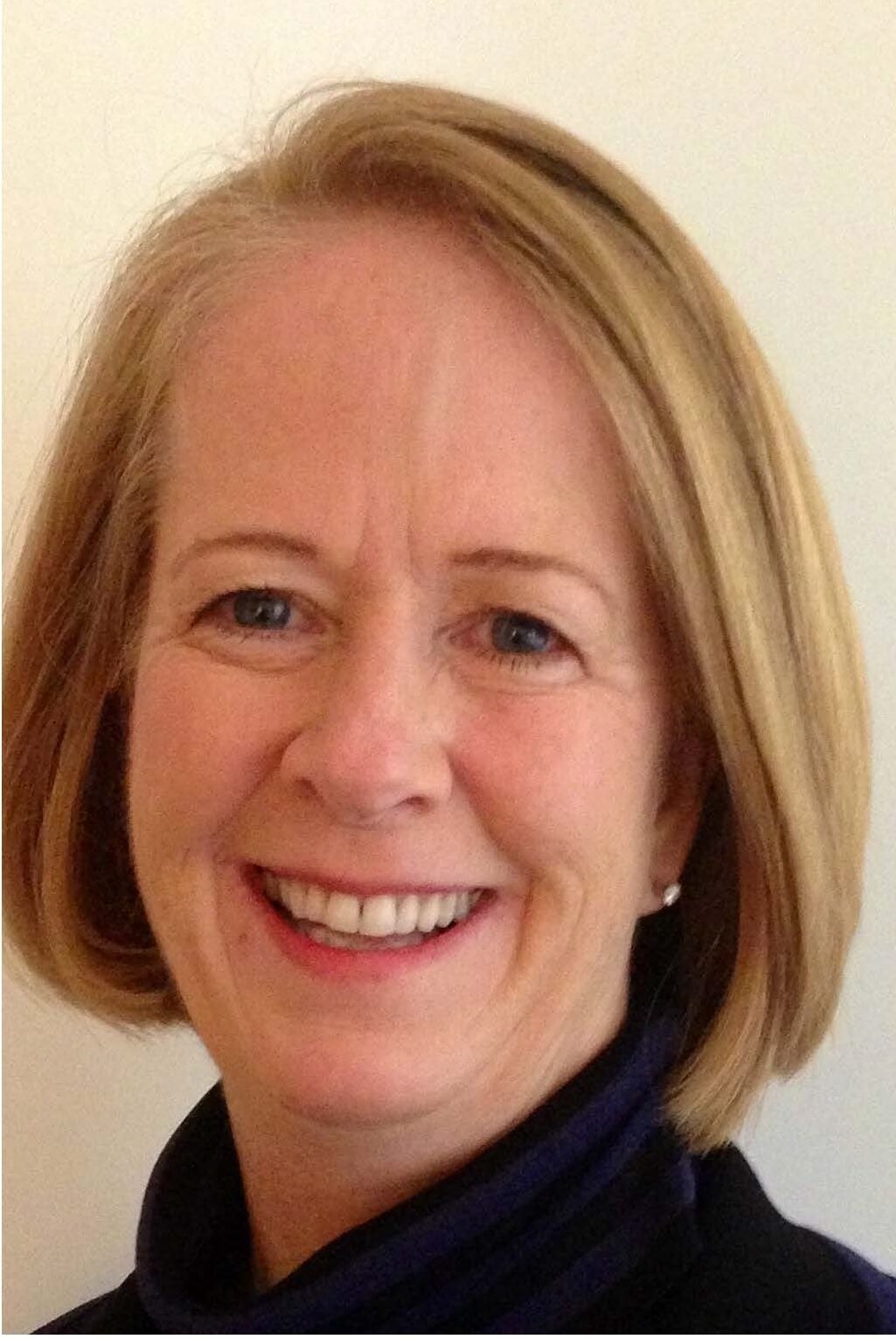
Barbara Pelletreau, RN, MPH
Instructor, School of Health, Georgetown University
Ms. Pelletreau recently retired as the Patient Safety Officer at CommonSpirit Health, one of the largest nonprofit healthcare systems, where she was responsible for regulatory readiness, medication safety, management of controlled substances, reduction of hospital-acquired conditions, voluntary events reporting, and loss control/prevention. Under her leadership, High Reliability (HRO), CANDOR (Communications AND Optimal Resolution), and Just Culture were spread system-wide. Barbara has led system-wide employee safety efforts, resulting in the reduction of workers’ compensation costs, at the University of California, Office of the President.
Ms. Pellletreau is known for her strategic and collaborative leadership, as well as her implementation of transformative and large-scale initiatives, patient-centric results, adoption of innovative technology solutions, and investment in her team and colleagues. Ms. Pelletreau continues her passion for safety by serving on advisory boards for innovative healthcare companies, chairing a policy committee promoting CANDOR, serving on the HQI Board (California Hospital Association) and CAI Board (University of Washington), and mentoring future healthcare leaders through the Carol Emmott Foundation.
Modern Healthcare and Becker’s recognized her from 2016 to 2019 as a “Top 50 Patient Safety Officer”, “Top 25 Innovator”, and other such industry leader designations. The ECRI Institute awarded her the “Alert Tracker Achievement Award Winner” in 2018 and 2019. Prior to CommonSpirit Health, she was an executive and manager at the University of California, Health Net, and John Muir Medical Center.
Ms. Pelletreau has been a key contributor to numerous published articles in national and international medical journals and featured speaker at conferences. Her professional passions include safer care, deliverable results, and highly engaged teams. Barbara has received several national awards for her patient safety and innovation leadership.

Raj Ratwani, Ph.D.
Professor, School of Medicine, Georgetown University
Dr. Ratwani is the director of the MedStar Health National Center for Human Factors in Healthcare, vice president of scientific affairs at the MedStar Health Research Institute, and a professor at the Georgetown University School of Medicine. As director, he oversees the Center’s vision and strategy and has overall responsibility for Center activities. He is also an active applied researcher serving as principal investigator on numerous grants and contracts, including three research project grant (R01) awards from the U.S. Department of Health and Human Services (HHS), which are among the most prestigious grants. Raj has expertise in health information technology, usability and safety, interruptions and workflow, data visualization, and modeling. Raj’s research has been funded by the Agency for Healthcare Research and Quality (AHRQ), National Institutes of Health (NIH), The Pew Charitable Trusts, and industry partners. His work has been published in high-impact journals such as The Journal of the American Medical Association (JAMA) and Health Affairs and has influenced both policy and frontline clinical practice. His research has been featured by Politico, Fortune, Kaiser Health News, National Public Radio (NPR), and many other media outlets. He serves on the federal 21st Century Cures Act Health Information Technology Advisory Committee and has testified to the U.S. Senate Health, Education, Labor, and Pensions Committee. He holds a doctorate in human factors and applied cognition and was a National Research Council post-doctoral fellow at the U.S. Naval Research Laboratory. He enjoys spending time with family, traveling, distance running, and tennis.

Edmund A. Tori, D.O., FACP, CHT
Assistant Professor, School of Medicine, Georgetown University
Dr. Ed Tori serves the Georgetown University School of Health and Georgetown University School of Medicine in multiple capacities – as an Adjunct Professor, a guest lecturer, and as a mentor. He is Adjunct Faculty for the Executive Masters in Clinical Quality and Safety Leadership (EM-CQSL). He is a regular guest lecturer in courses on organizational behavior, leadership and innovation. He will be serving the incoming class of GUSOM medical students as a Professional Identity Coach (Cura Personalis).
Ed speaks and coaches internationally on communication, influence, and behavior change. His training comes from over 23 years of apprentice work under experts in marketing, direct response copywriting, advertising, game design, hypnosis, NLP, facial profiling, cognitive psychology, and others. He is certified in Ericksonian hypnotherapy and conversational hypnotherapy.
Dr. Tori was a part of MedStar Health for 25 years where he held multiple clinical and non-clinical positions. He was a part of the initial team assembled to form the MedStar Health Center for Wellbeing. As the former Director of the Care for the Caregiver program, he helped to institute a 24/7 peer support hotline, on-the-ground Wellness Stations, regular Wellness Rounds and Wellness Office Hours, escalation pathways, and system-coordination for access to other employee resources. He was the Director of Wellbeing Education for the MedStar Health Center for Wellbeing.
He is the former Director of The Influence Center and former Associate Director of the MedStar Institute for Innovation (MI2). As the Director of the You Are Not Alone Program Dr. Tori coached MedStar associates engaged in claims and litigation.
Prior to that Dr. Tori served as a hospitalist and as the Medical Director of the Cardiovascular Step-Down Unit at MedStar Union Memorial Hospital in Baltimore, MD where he was responsible for running peri-operative cardiac services.
Dr. Tori is a Fellow in the American College of Physicians.
Ed completed his Doctorate in Osteopathic Medicine at the Philadelphia College of Osteopathic Medicine followed by a residency in Internal Medicine at MedStar Union Memorial Hospital where he was both Chief Resident and Resident of the Year.
Dr. Tori is board-certified in Internal Medicine. He received his Bachelor of Arts in Africana Studies from Cornell University.
Ed is a father of six and his oldest children grew up experiencing broccoli as a dessert. His pet emus help reduce his children’s screen time.
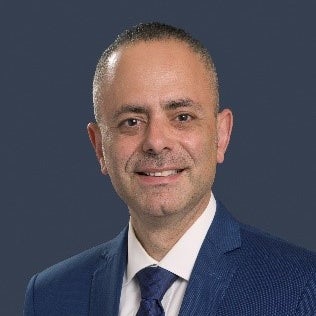
Eskandar “Alex” Yazaji, M.D., FACP
Assistant Professor, School of Medicine, Georgetown University
Dr. Alex Yazaji is the Vice President for Medical Affairs and the Chief Medical Officer at MedStar Union Memorial Hospital & MedStar Good Samaritan Hospital. Before his current role, he served as the president of the medical staff at Medstar Union Memorial Hospital. He also served as the Chief Quality and Safety Officer and the vice chair of medicine for Medstar Union Memorial and Good Samaritan hospitals. He serves on the board of directors for both hospitals. He holds a faculty appointment at Georgetown University as an Assistant Professor. Alex also serves as a faculty in the executive master’s in quality, safety, and leadership at Georgetown University. Alex received his medical degree from Damascus University and went on to residency training in Internal Medicine at MedStar Union Memorial Hospital, followed by a fellowship in Geriatric Medicine at the University of Maryland Medical Center. In 2004, he established and directed the hospitalist program at Bayhealth in Delaware until returning to Baltimore to join MedStar Union Memorial in 2008. Dr. Yazaji participated in the MedStar/ Wharton physician leadership development program in 2017. Dr. Yazaji won multiple teaching awards from the house staff. His interests include patient safety & quality and practicing high-quality medicine. He worked on multiple quality and safety initiatives at the local level, such as reducing hospital-acquired conditions, capacity management, and reducing readmission and length of stay. He also led and participated in many initiatives at the MedStar level, such as Catheter-Associated Urinary Tract Infection (CAUTI), alcohol withdrawal management, lab utilization, respiratory monitoring, sepsis, telemetry utilization, and improving mortality.
Invited Speakers

Karen Altekruse, PhD, MBA, SHRM-SCP, ACC
Director of Organization Development, Marshfield Clinic Health System
Dr. Karen Altekruse serves as the Director of Organization Development at the Marshfield Clinic Health System – one of the nation’s largest rural healthcare systems, serving over 300,000 unique patients with more than 3 million patient encounters in a year. The health system has over 11,000 employees and 1,600 providers, comprising 170 specialties, a health plan, and a research institute.
Since joining the Marshfield Clinic Health System in 2019, Dr. Altekruse has taken on additional functional areas of responsibility beyond organization and leadership development. She currently oversees performance, non-clinical learning and development, onboarding, change management, operational effectiveness, and employee/provider engagement.
After a successful exit of a marketing communications firm, she founded and scaled to a second-stage enterprise, Karen enrolled in an MBA program with concentrations in executive coaching and organizational behavior. In 2015 she earned a doctorate in Leadership Studies and was a full-time faculty member for a northern Wisconsin college before taking on the role of executive director of the college’s small business and entrepreneurship center. In this role, she coached and mentored business owners and entrepreneurs in growing their businesses. In 2016 Karen left academia and her role at the center to focus on working with businesses and executives who wanted to align their people strategy with their business strategy. Karen subscribes to the philosophy that businesses will grow and have the competitive advantage when they invest in developing their number one asset – their people.
When not at work or speaking about all things leadership and people development, Karen can be found sailing the Great Lakes, gardening, or biking.

Shirley Bomhoff, MSN, Lean Six Sigma Black Belt
Performance Improvement Advisor, MedStar Health
Shirley Bomhoff is a Performance Improvement (PI) Advisor with over two decades of experience in leadership, driving system-wide strategic transformation and sustainment of desired outcomes. Shirley is a Masters prepared Nurse by background and is a certified Lean Six Sigma Black Belt. She serves on the Maryland Association for Healthcare Quality Education Committee member. Shirley started her career as a nurse and graduated from Georgetown University School of Nursing. Shirley has experience in external consulting and has worked for a variety of large healthcare systems. Currently, she is with the MedStar Corporate Office of Performance Improvement and Analytics. She has a passion and expertise in PI methodologies and combines the principles of Lean Six Sigma, change management, high reliability, and human factors into her work. She is adept in performing statistical analysis and data visualization, supporting an informative and compelling case for change. A thought leader in the development of a strategic roadmap to drive the enculturation of continuous improvement, effective governance structures, and sustainability systems throughout the health system. Trusted consultant with acute emotional intelligence facilitating productive and clear communication with corporate leaders, local leaders, physicians, stakeholders, subject matter experts, and the frontline.

Lorena Bradford, Ph.D., MA
Accessible Programs, National Gallery of Art & Assistant Professor, Department of Oncology, Georgetown University Medical Center
Lorena Bradford runs Accessible Programs in the Education Division of the National Gallery of Art in Washington, DC, and holds the position of Adjunct Assistant Professor in the Department of Oncology at Georgetown University Medical Center. In the museum, she seeks to ensure a welcoming and rich experience for all visitors by eliminating physical, programmatic, technological, and other barriers to full engagement and discovery. She has developed and oversees programs for people with hearing and vision loss, people with memory loss and their care partners, families shaped by sensory processing disorders, and others. As faculty at Georgetown, she also creates and leads arts-immersive programs for healthcare students and professionals.
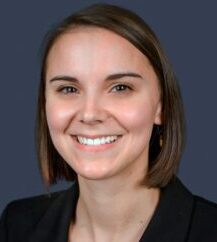
Rebecca Butler, MA
Senior Program Manager, Patient Safety, MedStar Health Institute for Quality & Safety
Rebecca Butler is a senior program manager for patient safety at MedStar Health. In this role, she helps manage the system’s adverse event reporting and review processes. Rebecca specializes in integrating human factors engineering and safety science principles to create and implement solutions that increase safety throughout the MedStar Health system. She has expertise in medical device usability and previously worked for MedStar Health’s National Center for Human Factors in Healthcare as a consultant to manufacturers working through the Food and Drug Administration (FDA) pre-market submission process. She holds a bachelor’s degree in industrial and systems engineering from Virginia Tech and a master’s degree in human factors and applied cognition from George Mason University.

Evan Campbell, MBA, MA
Senior Technology & Business Executive; Principal Consultant, Adaptivity
Evan is a senior technology and business executive with demonstrated success in CTO, Founder, and VP roles. He’s a proven entrepreneur bringing two software companies to IPO, and two firms to exit via sale to public companies. He has built and led a $30m business and led several organizations with hundreds of highly engaged and innovative knowledge workers.
For the last several years Evan’s focus has been on strategy deployment and execution. He has found many of his clients through the years had invested huge amounts in strategy development (often spending millions on the likes of McKinsey/Bain/BCG) but years later the strategy was still stuck in the boardroom – a stack of PowerPoints and binders that had never been effectively deployed to the organization. By linking OKRs with strategic imperatives he helps his client companies realize peak performance and competitive advantage.
His leadership and management consulting expertise includes strategy, OKRs, product innovation, lean and agile product/software development, and organizational transformation (digital, agile, and devops). He helps companies realize peak performance and competitive advantage.
His degrees and certifications include an MBA, MA, Certified Scrum Coach (SA CTC/CEC), SAFe Program Consultant (SPC), Certified Information Systems Auditor (CISA), Enterprise Business Agility Strategist (EBAS), Certified SAFe Lean Portfolio Manager, Certified Agile Leader (SA CAL) and others.
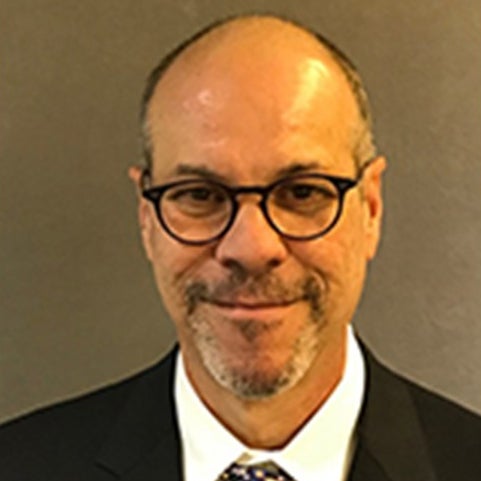
Robert Casanova, M.D., MHPE
ACGME CLER Field Representative & Professor, Department of Medical Education, Texas Tech University Health Sciences Center
Dr. Casanova received his undergraduate degree from Tulane University in New Orleans and his medical degree from the University of Texas Southwestern Medical Center in Dallas.
He spent 20 years in private practice in Austin, Texas before starting his career in academic medicine at Texas Tech University Health Sciences Center (TTUHSC). He received his Master in Health Professions Education from the University of Illinois in Chicago in 2018.
He is an Adjunct Professor in the Department of Medical Education and has served as clerkship director, residency program director, and assistant dean on two of the TTUHSC campuses.
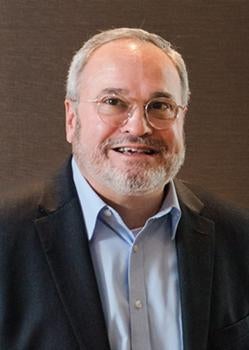
Craig Clapper, PE
Founder and Chief Knowledge Officer, Reliability 4 Life
Craig Clapper is a founder and the chief knowledge officer of Reliability for Life, a consulting group who specializes in improving human performance in complex systems using evidence-based methods derived from high reliability organizations. Craig has 30 years’ experience improving reliability in power, transportation, manufacturing, and healthcare. He specializes in failure analysis, event analysis, reliability improvement, and safety culture improvement. Craig has led safety culture transformation engagements for Duke Energy, US Department of Energy, ABB, Westinghouse, Framatome ANP, Sentara Healthcare, Sharp Healthcare, and others. Prior to R4L, Craig was the Chief Knowledge Officer of Healthcare Performance Improvement (HPI), the Chief Operating Officer of HPI, the Chief Operating Officer of Performance Improvement International, Vice President of Failure Prevention Inc (FPI), Systems Engineering Manager for Hope Creek Nuclear Generating Station, and Systems Engineering Manager for Palo Verde Nuclear Generation Station.

David C. Classen, M.D., M.S.
Professor of Medicine at the University of Utah; Consultant in Infectious Diseases and Clinical Epidemiology at The University of Utah School of Medicine
Dr. Classen is a Professor of Medicine at the University of Utah and a Consultant in Infectious Diseases and Clinical Epidemiology at The University of Utah School of Medicine in Salt Lake City, Utah, and the CMIO at Pascal Metrics, a federally certified Patient Safety Organization (PSO)
He received his medical degree from the University Of Virginia School Of Medicine and a Master’s of Science degree in medical informatics from the University Of Utah School Of Medicine. He served as Chief Medical Resident at the University of Connecticut. He is board certified in Internal Medicine and Infectious Diseases. He developed the medication safety programs at Intermountain Healthcare; He was the chair of Intermountain Health Cares Clinical Quality Committee for Drug Use and Evaluation and was also the initial developer of patient safety research and patient safety programs at Intermountain Healthcare. In addition he developed, implemented, and evaluated a computerized physician order entry program at LDS Hospital that significantly improved the safety of medication use.

Heather Daugherty, MD, EM-CSQL
Medical Director, EviCore
Heather Daugherty is a family medicine physician with a passion for patient safety and process improvement. She holds undergraduate degrees in Biology and Psychology from Virginia Tech, an Executive Master’s Degree in Clinical Quality, Patient Safety, and Leadership from Georgetown University, and a Doctor of Medicine Degree from the Uniformed Services University. Following medical school graduation, she commissioned as an officer into the United States Air Force and completed her family medicine residency at Fort Belvoir Community Hospital, VA. Heather served a total of 14 years in the United States Air Force and four years in the Civil Service. She currently serves as a Medical Director for EviCore. While originally from Roanoke, VA, Heather currently lives in Colorado Springs, CO with her husband, son, two dogs and two cats. She’s an avid sports fan, loves hiking, wine tasting and traveling, knows almost all the lyrics to the Broadway play Hamilton and is very much a Ravenclaw.
Colonel Edward Houle, Retired
Retired Air Force Officer
Colonel Ed Houle is a retired air force officer with over 20 years’ experience. Col. Houle was a fighter pilot in the air force’s most sophisticated aircraft. He served on the battlefield in Europe and the Middle East. During his air force tenure, Col. Houle served as a group commander, responsible for over 500 support staff and pilots. Having flown 49 combat missions, Ed is the recipient of the Distinguished Flying Cross, Bronze Star and 5 air medals for performance in air combat. His assignments also included multiple roles within the Dept. of Defense where he drafted policies that guided the U.S. Military presence in the Persian Gulf, restructured the USAF flying operation in Europe and led one of 3 Defense Department Crisis Action Teams.
Following his retirement from the military, Ed worked as a commercial airline pilot, flying both domestic and international fights for 17 years.
Following his retirement from Delta Airlines, Ed has served in executive leadership roles in numerous for profit and not for profit organizations.
During his free time Ed enjoys traveling and spending time with his wife of 50 years, 2 children and 8 grandchildren.

Jeffrey H. Lawson, MD, PhD
Surgeon, Scientist, Innovator
Dr. Lawson received his Medical Degree and a Ph.D. in Cell and Molecular Biology from the University of Vermont where he also completed a Postdoctoral Fellowship in Biochemistry. Dr. Lawson continued his clinical training with a residency in General and Thoracic Surgery and a Fellowship in Vascular Surgery at Duke University where he joined the faculty as both a surgeon and scientist. He was formerly Professor and Vice Chair of Research in the Department of Surgery at Duke with a robust clinical practice and basic science laboratory. He also served as the Director of the Vascular Surgery Research Laboratory, oversaw clinical trials for the Department of Surgery, and led the General Surgery Research Residency Program. He is currently Adjunct Professor of Surgery at Duke University. Dr. Lawson has also served in leadership roles (CMO, CSO and CEO) for a number of biotechnology and medical device companies (InnAVasc, Humacyte, Atlantic Research Group, VarmX, Vascudyne) and has successfully helped manage these companies through strategic growth, financing and exists to both the public and private sectors. He has co-author of over 150 journal publications on the topics of hemostasis, tissue engineering and vascular surgery and lectures on these topics both nationally and internationally. Dr. Lawson’s research has been funded by the National Institutes of Health (NIH), National Science Foundation (NSF), Department of Defense (DoD), American Heart Association (AHA) and various biotechnology companies. As a physician, scientist, innovator and entrepreneur, Dr. Lawson has helped to raise significant capital to fund emerging technologies and has been a strategic advisor for early stage start-ups, large publicly traded companies and governmental agencies.

Laura Lee, M.S., BSN
Assistant Vice President, Patient Safety, MedStar Health
Laura Lee is MedStar Health’s Assistant Vice President for Patient Safety. In this role, Laura is integral to developing and operationalizing MedStar Health’s high reliability and patient safety strategic initiatives. Laura is committed to bringing the principles of high reliability to life through practical applications at the front-line of care delivery and healthcare operations, to advancing MedStar Health as a leader in fostering a psychologically safe and just culture, and to designing proactive safety systems to anticipate and prevent hazards and unsafe conditions.
Prior to joining the MedStar Health team, Laura was the Director of the Office of Patient Safety and Clinical Quality at the National Institutes of Health Clinical Center (NIH CC). A central aspect of her responsibilities at the NIH CC was applying safety science principles in the clinical research environment to assure the provision of safe and high-quality care at the intersection of clinical care and clinical research.
Laura holds a Master of Science in Patient Safety Leadership from the College of Medicine at the University of Illinois-Chicago, a Bachelor of Science in Nursing from the Catholic University of America, and a Bachelor of Arts in Business Administration from Gettysburg College.

Sebastian Little, ACC
Mental Performance & Leadership Coach
Sebastian Little is dedicated to creating spaces for full self-expression and play. He operates his own coaching and consulting practice, where he partners with leaders and teams to build leadership competencies, high-performance practices, and team culture.
Sebastian worked as a consultant at the McChrystal Group, a management consulting and leadership development firm in Washington, D.C., founded by retired 4-star general Stan McChrystal. He is a graduate of Yale University and a former varsity football athlete. During his Yale tenure, he partnered with the Yale Center for Emotional Intelligence as both a student and an intern, creating a curriculum on emotionally intelligent leadership. He received his ACCC professional coach certification through the Accomplishment Coaching training program.

David Marx, JD
CEO, The Just Culture Company
David Marx is CEO of The Just Culture Company, a U.S.-based firm. David has a BS in Mechanical Systems Engineering (1985) and Juris Doctor in Law (1997). David’s firm currently spends the majority of its effort on helping high-consequence organizations develop values-supportive practices and culture.
David began his career as a Boeing aircraft design engineer. In his final years at Boeing, David organized a human factors and safety group. In his work at Boeing, David won the International Federation of Airworthiness’s Whittle Safety Award for his development of a human error investigation process used by airlines around the world.
In 1997, David launched a research and consulting practice focused on the management of human error through the integration of systems engineering, human factors, and the law. David served as an advisor to the Federal Aviation Administration’s Human Factors Research Program and to the NASA Space Shuttle Program. David was the principal consultant to NASA in the development of their major mishap investigation process, and he led an outside team to benchmark space shuttle processing quality. David has developed risk modeling methods, including an approach called sociotechnical probabilistic risk assessment (ST-PRA) and the Trajectories® process, which have been used to model risk in aviation, space, rail, and healthcare.
In the healthcare sector, David has been working to help healthcare institutions and regulatory
agencies reduce the risk of iatrogenic patient harm. He was on the Board of Advisors for the
National Patient Safety Foundation, and won the Institute of Safe Medication Practices’ Lifetime
Achievement Award for his work on medication safety. In the area of healthcare safety culture,
David authored the document, “Patient Safety and the ‘Just Culture’: A Primer for Healthcare
Executives,” for the National Institutes of Health.
David has written two books. Dave’s Subs: A Novel Story About Workplace Accountability, was
released in November 2015. David’s first book, Whack-a-Mole: The Price We Pay For Expecting
Perfection, was released in September 2009.

Umbereen S. Nehal, MD, MPH
President & Founder, Nehal Group LLC
Umbereen S. Nehal, MD, MPH is an MIT Sloan Fellow MBA candidate, a former Medicaid medical director, and a former Chief Medical Officer for a 14-center community health organization in NYC. Educated at Aga Khan University, Baylor College of Medicine, and Harvard School of Public Health, she has been named a “Top Voice” four times by LinkedIn and has over 230,000 followers. Dr. Nehal was the clinical lead for $1.8b in new funding for Medicaid reform for value-based care. She was recognized by President Obama for a healthcare enrollment campaign for the White House. Dr. Nehal is published in the area of quality improvement, business models for AI in healthcare, and medical education for patient-centered care. Dr. Nehal was an elected board member for the American Academy of Pediatrics, Massachusetts Chapter, and frequently has been invited to advise federal agencies and the White House on public policy. She lives in Boston and enjoys painting, snowshoeing, and trying new recipes.

Michelle Pokorny, D.Min
Adjunct Professor, Dallas Theological Seminary
Dr. Michelle Pokorny is an Adjunct Professor at Dallas Theological Seminary, where she teaches doctoral courses on leadership growth and development. With a master’s degree in education and years of experience serving an international organization dedicated to bringing hope and healing to some of the world’s most vulnerable communities, Michelle brings a unique blend of academic insight and real-world impact to her work.
Her doctoral research explored burnout and soul-care among leaders, fueling her passion for helping men and women not just survive, but truly thrive in their daily lives and work. Michelle and her husband make their home in Texas, where they enjoy traveling, discovering great food, and keeping up with the adventures of their young son.

Paulo Pontemayor, MPH, ND-HLSL C’21
Senior Director of Government Relations, Catholic Health Association of the United States
Paulo G. Pontemayor currently serves as Senior Director of Government Relations for the Catholic Health Association of the United States (CHA), the national leadership organization of more than 2,200 Catholic healthcare systems, hospitals, long-term care facilities, and other health organizations—the largest group of nonprofit health care providers in the nation. He also serves as Chair Emeritus for the Partnership for Medicaid, made up of organizations representing clinicians, healthcare providers, safety-net health plans, and counties whose goal is to preserve and improve the Medicaid program. Prior to CHA, he has worked at The Joint Commission, the U.S. Department of Health and Human Services, the Asian & Pacific Islander American Health Forum, and as an aide for several members of the U.S. House of Representatives. Paulo has an Executive Certificate in Healthcare Leadership and Patient Safety from Georgetown University, a Master of Public Health degree from the Milken Institute of Public Health at George Washington University, and an undergraduate degree from the University of Washington in Seattle. He was recently named a Top 40 under 40 healthcare leader by the National Minority Quality Forum and has been recognized as a Top 100 Lobbyist in 2021 and 2022 by the National Institute for Lobbying and Ethics.

Miriam E. Schwartz, M.D., M.A., Ph.D., CPPS, CHSE
Associate Professor, Health Sciences, UCLA Geffen School of Medicine
Dr. Miriam Schwartz earned her B.S. degree in Biology from California State University at Los Angeles and obtained her Ph.D. in Biological Sciences at Purdue University. She received her B.A., M.A., and M.D. degrees from the University of Dublin – Trinity College in Ireland. She completed family medicine residency at the University of Southern California Keck School of Medicine and geriatric medicine fellowship in the VA-UCLA Geriatric Medicine Fellowship Program. Dr. Schwartz is an attending physician in two state homes – the Lancaster and Ventura Veterans Home of California. She is a volunteer staff physician at the Greater Los Angeles VA Healthcare System. Dr. Schwartz is also a Health Sciences Associate Professor at the UCLA Geffen School of Medicine. She is a volunteer faculty mentor in the UCLA Maternal Child Health Pipeline Training Program that recruits undergraduate students from economically and educationally disadvantaged backgrounds into maternal and child healthcare professions.

Leilani Schweitzer
Medical Harm Response Expert, Co-Founder, Comms Corps
Leilani Schweitzer is a Medical Harm Response Expert, helping health systems and insurers respond to medical harm with compassion, transparency and responsibility. She came to this work because of her son’s death after a series of medical errors. For 12 years she worked at Stanford Health Care, where her son died, collaborating with patients, their loved ones, clinicians and attorneys after harm events. Her lived experience, work at Stanford and hospitals around the US, has given her a unique view of challenges facing healthcare, including harm, disclosure and apologies. She is currently Board President of the Collaborative for Accountability & Improvement.
Leilani’s work has been discussed in the New York Times, Wall Street Journal, on CNN, the Ted Radio Hour and RadioLab podcasts. Her TedX talk has been viewed more than 227,000 times and is used in healthcare curricula around the world.
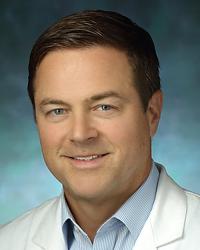
David Stockwell, MD, MBA
Chief Medical Officer, Johns Hopkins Children’s Center & The Charlotte R. Bloomberg Children’s Center, Associate Professor, Anesthesiology & Critical Care Medicine, Associate Professor, Pediatrics, Core Faculty, Armstrong Institute for Patient Safety and Quality, Johns Hopkins University School of Medicine
David obtained his undergraduate degree in Business Administration at the University of Kansas in 1990 followed by his graduate degree in Medicine at the University of Oklahoma College of Medicine. In 1999, he came to the East Coast as a Pediatric Resident at Children’s National Medical Center in Washington, DC. He remained at CNMC for Chief Residency, Pediatric Critical Care Fellowship and the following 12 years as an attending physician in the Pediatric Intensive Care Unit. His faculty appointment was at George Washington University; he was promoted to Associate Professor in 2013.
His career at CNMC was marked by progressive leadership, continued education and recognition in patient safety. He was the Medical Unit Director of the CNMC PICU from 2007-14. He had significant impact on hospital-wide patient safety and practice at CNMC, serving as Medical Director for Patient Safety (2007-14), Executive Director of Improvement Science (2009-14) and President of the Medical Staff (2014-16). During that time, he furthered his formal education by obtaining a Master’s in Business Administration from The George Washington University School of Business (2007-9) and attending courses at the Harvard Quality Colloquium Patient Safety Program and the American Society for Quality.
David has held multiple national leadership roles in safety and quality at the American Board of Pediatrics, Center for Disease Control, Children’s Hospital Association, the Leapfrog Group, National Quality Forum, the Patient Safety Movement Foundation, Virtual PICU Systems and Solutions for Patient Safety. His academic interest in adverse event detection via electronic health record triggers have been supported by external funding. He has over 80 peer reviewed publications, book chapters and invited publications. He has had over a hundred invited speaking and visiting professorships throughout the country. David has been recognized with awards for leadership and innovation on a hospital, local and national level, from elimination of PICU blood stream infections, identification of unplanned extubations as a national priority to development of a web application, Pediatrics on Hand.
In 2014 David’s influence broadened when he assumed the role of Chief Medical Officer of Pascal Metrics, Inc., an industry leader in Patient Safety. His focus there is supporting health care organizations in implementation of adverse event triggering systems via the electronic medical record.
Recruited to John Hopkins University, School of Medicine in 2019, he was appointed as Chief Medical Officer of the Johns Hopkins’ Children’s Center in 2021, where he serves currently.

Paul Uhlig, M.D.
Associate Professor, University of Kansas Medical Center
Paul Uhlig is a cardiothoracic surgeon with years of experience building innovative teams to improve patient care. Paul is in clinical practice and an Associate Professor at the University of Kansas Medical Center in Wichita, Kansas. Paul has previously served at Dartmouth and Harvard, where he was instrumental in helping to build one of the first comprehensive simulation centers. Using the work of Jody Gittell on Relational Coordination, Paul has pioneered an innovative care model called Proximal Care that seeks to put the patient in the center of care and allows the patient not to simply participate in their care but actually drive their care.
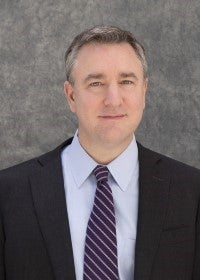
Craig A. Umscheid, M.D., M.S.
Director, Center for Quality Improvement and Patient Safety (CQuIPS)
Craig A. Umscheid, M.D., M.S., is a hospitalist and clinical epidemiologist who serves as the Director of the Center for Quality Improvement and Patient Safety (CQuIPS). Most recently, he was a Senior Science Advisor and Director of the Evidence-based Practice Center Division at AHRQ. He is also an Adjunct Professor at Georgetown University, where he practices clinically. Prior to joining AHRQ, Dr. Umscheid was an Associate Professor at the University of Chicago, where he served as the Chief Quality and Innovation Officer and Vice President of Healthcare Delivery Science. He began his career at the University of Pennsylvania, where he became an Associate Professor, Vice Chair of Quality and Safety for the Department of Medicine and was a co-founder and Director of Penn Medicine’s Center for Evidence-based Practice.
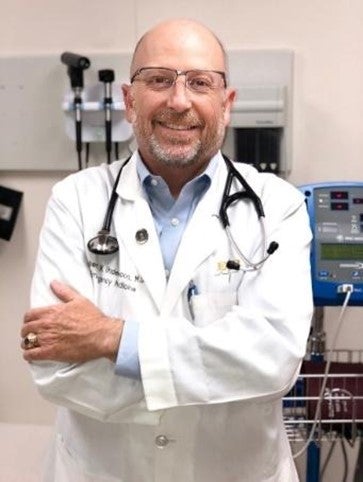
Robert Underwood, MD, MHCDS, CPE
Chief Medical Officer, San Juan Regional Medica Center
Dr. Robert Underwood is the Chief Medical Officer at San Juan Regional Medical Center in Farmington, NM, starting there in 2017. He continues to see patients at the hospital’s urgent care clinic. He is the co-author of the book The Leader’s Compass for Medical Professionals. Dr. Underwood also serves as the President-Elect of the New Mexico Medical Society and will assume the presidency in October 2025.
Dr. Underwood is a graduate of the United States Military Academy at West Point, New York earning a Bachelor of Science degree (1987). He completed medical school at the University of South Carolina School of Medicine (1998) and residency in emergency medicine at Wake Forest University School of Medicine (2001). Dr. Underwood also holds a Master of Health Care Delivery Science degree from Dartmouth College (2015).
Between West Point and medical school Dr. Underwood served in the US Army as a field artillery officer in both cannon and missile units. After leaving active military duty he continued to serve as an officer in the artillery and then served as a physician in the South Carolina Army National Guard.
Dr. Underwood has served as a Medical Director, Chief Medical Informatics Officer and Chief Medical Officer. He has led quality improvement initiatives and implemented strategies to enhance patient safety and clinical workflows, including performance measurement and analytics, and clinical governance and oversight. He has particular interest in developing clinical leaders.
He is married, has 3 children, 2 stepchildren and two grandchildren. He spends his free time at his cabin in the Colorado Mountains, and traveling with his wife, Gina.

Sam R. Watson, MSA, MT(ASCP), CPPS
Senior Vice President, Field Engagement, Michigan Health and Hospital Association
Sam R. Watson, MSA, MT(ASCP), CPPS, is the senior vice president of Field Engagement for the Michigan Health & Hospital Association (MHA). In this role, Watson leads member services and develops strategic relationships with stakeholders to further the mission of the MHA. Additionally, Watson provides executive leadership for the Education division and the MHA Keystone Center.
Over the years, Watson has led numerous efforts to build collaborative relationships across multiple entities in Michigan and beyond. Most recently, co-leading the creation of Superior Health Quality Alliance, an eight-organization consortium that addresses quality and safety through federally funded contracts. Prior to being named senior vice president of Field Engagement, Watson led the MHA Keystone Center in its efforts to improve patient safety and quality, including federally funded Hospital Engagement Networks, Hospital Improvement Innovation Networks, and many statewide quality initiatives, with focus areas such as surgery, obstetrics, hospital-associated infections, emergency departments, sepsis, falls, pressure ulcers, venous thromboembolism, and care transitions.
Under Watson’s leadership, the MHA Keystone Center was the recipient of the Eisenberg Innovation in Patient Safety and Quality Award and Dick Davidson Quality Milestone Award for healthcare improvement. Watson has been recognized as one of the 50 Experts Leading the Field of Patient Safety by Becker’s Hospital Review, a leading healthcare publication.
Watson currently serves on several professional organizations and committees, including the boards of directors for the Institute for Healthcare Improvement, Christian Life Services – Holland Home, Spectrum Health West Michigan, and the Michigan Homecare and Hospice Association.

Ellena Weaver, MPH, BS, CPHQ
Co-Owner, Weaver Enterprises & Investments, LLC
Ellena M. Weaver, MPH, BS, CPHQ, is a healthcare quality and public health leader with more than a decade of experience designing enterprise-level quality improvement and equity initiatives across national health plans, including CareFirst BlueCross BlueShield, Cigna, and Molina Healthcare. As former Director of Enterprise Quality at CareFirst, she led accreditation readiness and developed instructional programs integrating health equity and data-driven performance improvement.
Currently a Doctor of Public Health (DrPH) candidate at Morgan State University, her research examines the public health effects of urban blight and community revitalization. Ellena’s teaching and leadership philosophy center on using actionable data, continuous improvement frameworks, and culturally responsive methods to achieve sustainable, equitable outcomes. She is passionate about bridging practice and pedagogy to prepare future leaders to drive systemic change in healthcare and community settings.

Robert Wiebe, M.D.
Chief Medical Officer, CommonSpirit
Bob’s accountabilities include quality, patient safety, clinical service lines, physician engagement, academic medicine, clinical research, medical informatics, and clinical data science. He joined Dignity Health in 2008 and served as Executive Vice President and Chief Medical Officer. Previously, he was a senior executive in the Veterans Health Administration. Bob received a bachelor’s degree in mathematics and a medical degree at the University of Missouri, Columbia. He received a master’s degree in public health at the University of California, Berkeley, and a master’s degree in business administration at Stanford University Graduate School of Business.
Advisory Council
The EM-CQSL Advisory Council is comprised of dedicated thought leaders focusing on the continuous improvement of the program curriculum and hiring and retaining top talent. The council’s goal is to provide insight and guidance to achieve the best education for EM-CQSL learners.
Barbara Bregman, PT, PhD
Professor, Departments of Neuroscience and Rehabilitation Medicine, GUMC
Director of Education and Training, Research Division, Medstar National Rehabilitation Hospital, and Associate Dean, Health Professions and Education Development, GUMC
Jillian Daly, EM-CQSL, CMD
Certified Medical Dosimetrist at Memorial Sloan Kettering Cancer Center
Kareen Jones, MD, EM-CQSL
Assistant Professor of Pediatrics, University of Central Florida College of Medicine, and Pediatric Intensivist and Anesthesiologist, Medical Director of Harm Prevention, Nemours Children’s Hospital, Florida
Dae Hyun (Daniel) Kim, PhD
Assistant Professor, Health Management and Policy, Georgeotwn University School of Health
Laura Lee, MS, BSN
Asssistant Vice President, Patient Safety, MedStar Health
Kristen Miller, DrPH, MSPH, MSL, CPPS
Co-Director, MedStar Health Center for Diagnostic Systems Safety and Scientific Director, MedStar Health National Center for Human Factors in Healthcare, and Associate Professor, Emergency Medicine, Georgetown University
Eileen Moore, MD
Associate Professor, School of Medicine, and Associate Dean, Service and Advocacy, Georgetown University School of Medicine
Douglas Paull, MD, MS, FACS, FCCP, CHSE, CPPS
Associate Professor, School of Medicine, Georgetown University, and Surveyor, Joint Commission
Eric Pitts, PharmD, MBA, EM-CQSL, CPHQ
Director of Pharmacy, MedStar National Rehabilitation Network
Ed Tori, DO, FACP, CHT
Assistant Professor, Georgetown University School of Medicine, and Keynote Speaker, Trainer and Influence Consultant, Influence Everywhere
Craig Umscheid, MD, MS
Associate Chief Quality and Safety Officer and Hospitalist, MedStar Georgetown University Hospital, and Professor, Georgetown University School of Medicine
Kevin Weiss, MD
Former Accreditation Council for Graduate Medical Education (ACGME) Chief Sponsoring Institutions and Clinical Learning Environments Officer